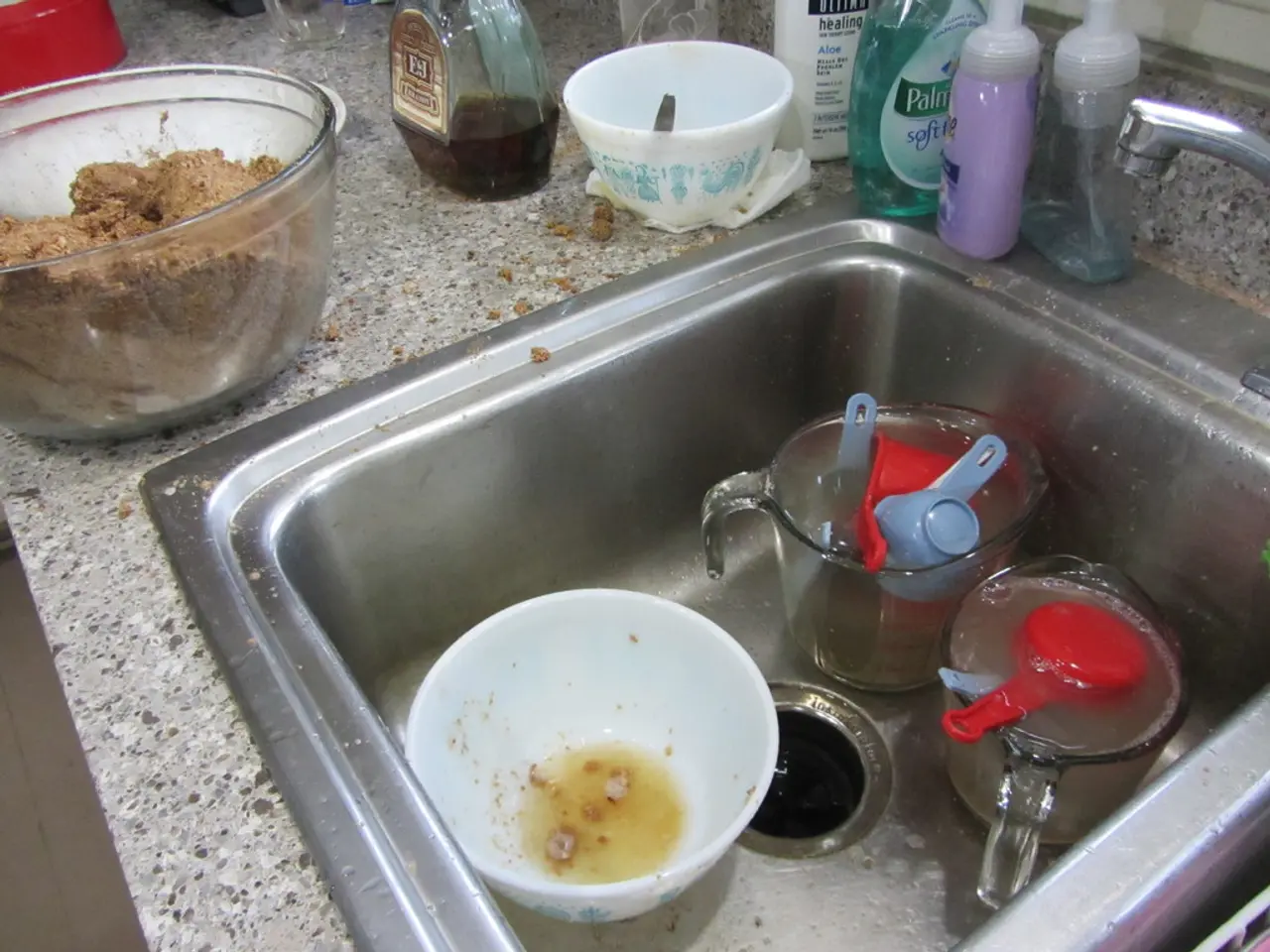Mass food poisoning outbreak strikes hundreds in Indonesia, traced back to school meal distribution
Indonesia's Free School Meals Program Faces Food Safety Challenges Amid Mass Poisoning Outbreaks
Indonesia's free school meals program has been under scrutiny after a series of food poisoning incidents, most notably the outbreak in August 2025 in Sragen, Central Java, where over 360 students and residents fell ill[1][2][3][4]. The program, launched in January, has expanded to over 15 million recipients and aims to reach 83 million by year-end with a budget of 171 trillion rupiah ($10.62 billion) this year[7].
The incident in Sragen highlighted ongoing issues related to food safety and kitchen operations. The meals implicated included turmeric rice, scrambled eggs, fried tempeh, cucumber salad, and milk, prepared in a central facility with distribution to multiple schools[1]. In response, authorities temporarily halted food service from the affected kitchen pending laboratory test results[3].
Following previous poisoning cases, the government reportedly raised sanitary standards for cafeteria operations and food delivery processes[3]. The National Food Agency and provincial representatives emphasized ongoing investigations and pledged stricter controls on food safety in school meal programs[3]. Measures to protect vulnerable children, such as identifying those with food allergies to prevent exposure to triggering foods, have been implemented as part of safety improvements[5].
However, critics argue that the program's rapid expansion and budget constraints, exacerbated by government austerity measures cutting billions from other ministries, could be linked to compromised food safety[1][2]. The government has committed to covering medical costs for affected students and is under public pressure to improve the safety and operation of the program's kitchens to prevent future outbreaks[2].
In a separate incident in May, over 200 students in a city in West Java fell ill due to food poisoning, and lab reports found the food was contaminated with Salmonella and E. coli bacteria[6]. The central kitchen from which the lunch was distributed is temporarily halted by the government for further investigation. The town of Sragen in Central Java has also experienced a mass food poisoning incident[6].
The National Nutrition Agency has increased kitchen operations and delivery standards following these incidents[6]. It remains to be seen whether these measures will effectively address the food safety issues plaguing the free school meals program in Indonesia.
References:
- BBC News
- Reuters
- Jakarta Post
- CNN Indonesia
- The Straits Times
- The Jakarta Post
Read also:
- Genetic Rarity Explored: Insights into Science, Struggles, and Misconceptions Surrounding Albinism
- Smoking Secondhand: Impact, Frequently Asked Questions, and Additional Information
- Strategies for Mitigating Negative Feelings in Customer Interaction with Your Goods or Services
- Is it necessary for concerts to be so excessively loud that ear protection is essential?








